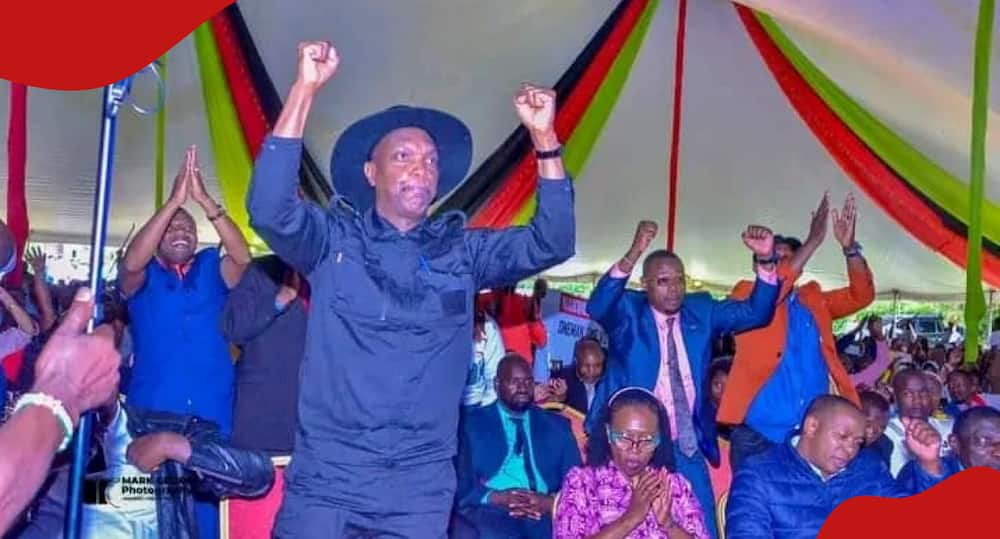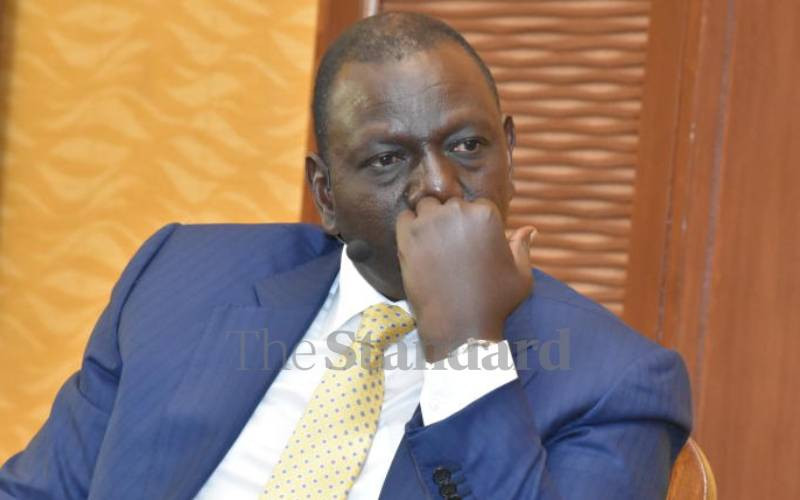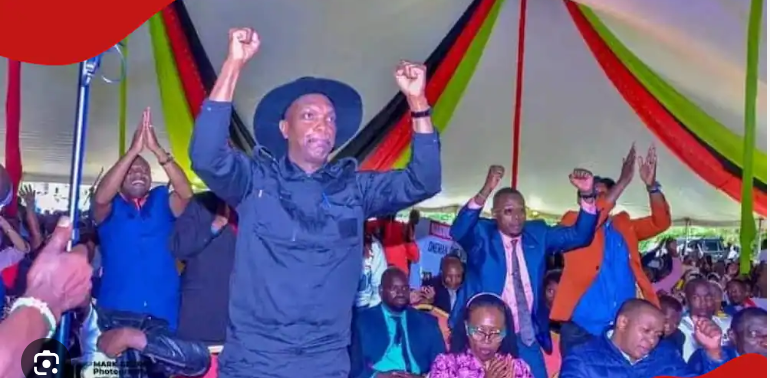Mount Kenya’s Political Earthquake: The Rise of the Haki Coalition
A political earthquake is taking shape in the Mount Kenya region, threatening to reshape the landscape for both President William Ruto’s Kenya Kwanza alliance and the opposition Azimio coalition.
The growing rift between President Ruto and Deputy President Rigathi Gachagua, combined with the emergence of a new coalition coalescing around former President Uhuru Kenyatta, is set to dramatically alter the political terrain.
The Birth of Haki Coalition
On Wednesday, insiders from the newly formed Haki Coalition announced their move to officially register the outfit with the Registrar of Political Parties.

The coalition, unveiled at the Limuru III meeting last Friday, could see key political parties from the region, including Narc Kenya and Jubilee, formally exit Azimio.
“Haki Coalition [the name] has been reserved. Once the case regarding Jubilee leadership is resolved by the court, they will join the Haki Coalition just like other members,” Kiambu politician Damaris Waiganjo told the Star.
With the potential departure of major parties from Azimio, the political balance in the region is set for a seismic shift. Registrar of Political Parties Anne Nderitu indicated that while the application to register Haki Coalition might have been submitted, it was not yet processed.
A New Political Power Play
Raila Odinga’s former head of presidential campaign, Nderitu Murithi, played down the potential rivalry between Haki and Azimio, emphasizing that their focus is on the region’s economic development.

“We are brought together by the political, economic, and social situation of our times relating to that particular region of Kenya,” Murithi said.
However, the implications for President Ruto are significant. The new coalition, led by Martha Karua, is mobilizing grassroots support to challenge Ruto’s dominance in the vote-rich Mt Kenya region.
Ruto, who relied heavily on this bloc in his presidential victory, faces renewed opposition over his tax policies and unfulfilled promises regarding regional infrastructure projects.
“Why are our people being fired in government? Why are we importing milk from other countries yet our farmers are struggling to get their milk to processors? What happened to Kenol-Marua Road completion? What happened to Mau Mau road completion? What happened to Ruiru 2 Dam construction?” Githunguri MP Gathoni Wamuchomba questioned.
Internal Turmoil Within Kenya Kwanza
Aside from the external threat posed by Haki Coalition, Ruto must also address growing discontent within his own ranks.
Deputy President Gachagua has publicly expressed a willingness to reconcile with Uhuru to unite Mount Kenya, signaling potential fractures within Kenya Kwanza.

“Uhuru Kenyatta is our son. He should come so that we unite. Is that okay? Do you have a problem with him? The election period is over. We should unite as one region and love each other. If we fail to unite, love each other and agree, we shall find ourselves in difficult situations,” Gachagua said.
Reactions from Political Figures
Makueni Senator Daniel Maanzo, a close ally of Wiper leader Kalonzo Musyoka, dismissed the potential impact of the new coalition, suggesting it was merely local reorganization.
ODM Secretary General Edwin Sifuna echoed this sentiment, stating that the activities of Haki Coalition would only strengthen Azimio.
Analysts Weigh In
Political analysts believe the formation of Haki Coalition marks a critical juncture in Mount Kenya politics with far-reaching consequences for both Ruto and opposition leader Raila Odinga.
Charles Mwangi Ng’ang’a, a political analyst and JKUAT don, argued that the coalition could become a formidable force if it harnesses the same energy and unity as the TNA did in 2013.
“If Haki can harness the same energy and unity that the TNA did in 2013, it could become a formidable force in 2027. The involvement of Uhuru Kenyatta as a patron, despite his lack of political ambitions, adds a layer of credibility and stability,” Ng’ang’a said.

New Democrats party leader Thuo Mathenge emphasized the need for regional unity and urged Rigathi Gachagua and Uhuru Kenyatta to reconcile for the sake of the community.
“I would like to urge our Deputy President Rigathi Gachagua to reach out to Uhuru Kenyatta for the sake of unity,” Mathenge said.
However, political analyst Albert Kasembeli cautioned that the coalition must overcome significant challenges to gain widespread support.
“While the idea of unity is appealing, the reality is that political loyalties in Mount Kenya are deeply entrenched. The coalition will need to prove its effectiveness in addressing the region’s issues and managing internal dynamics,” Kasembeli said.







More Stories
Kenya’s Political Journey: Elections, Economy, and the Uncertainty of 2027
DP Party Preparing Its founder, Mwai Kibaki’s Memorial
Irungu Nyakera Backs Waititu as Farmers Party Leader